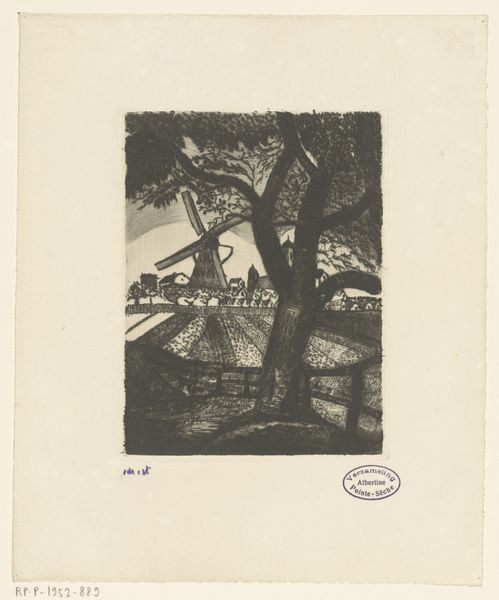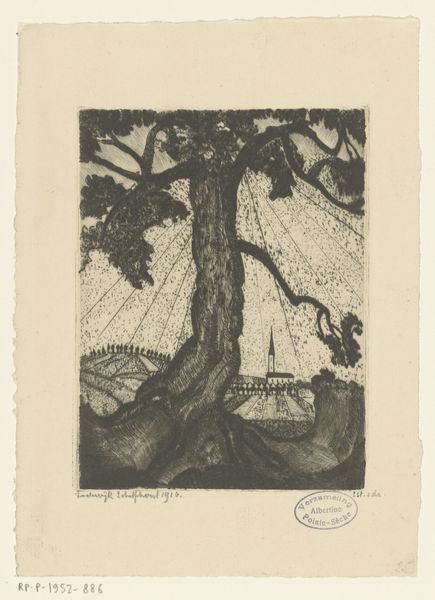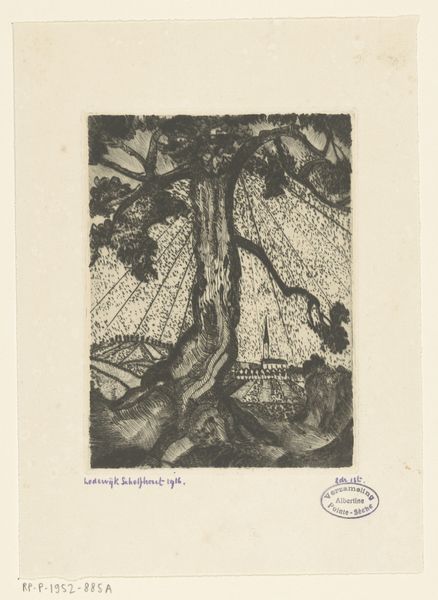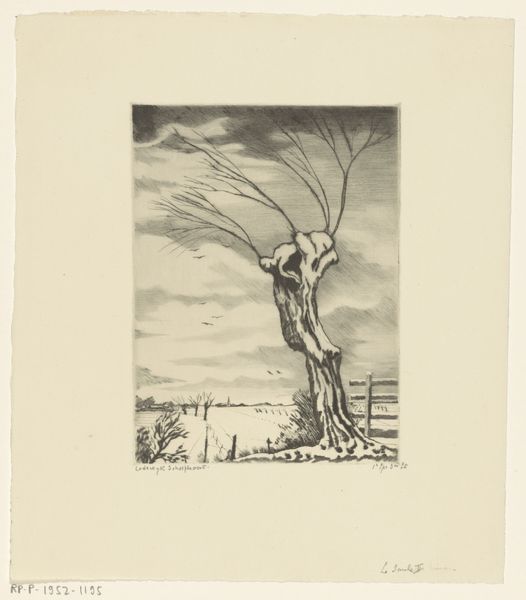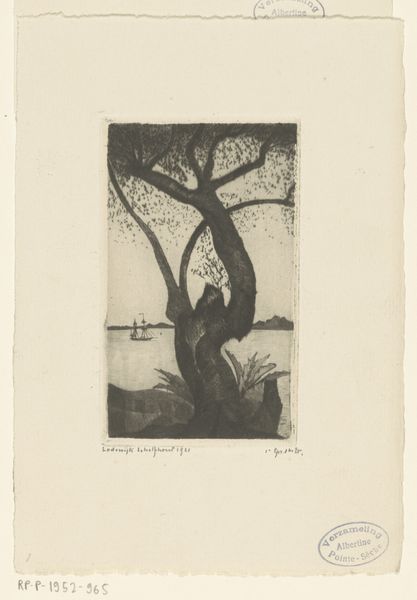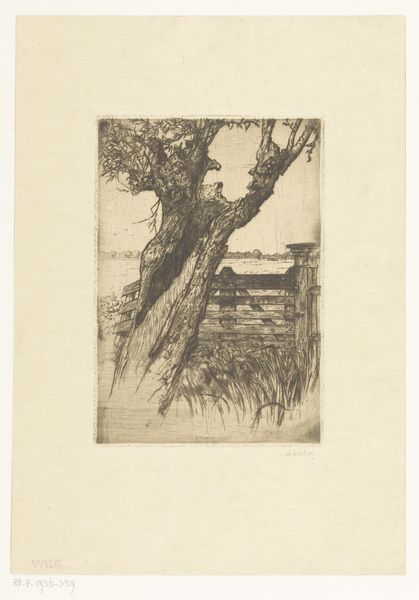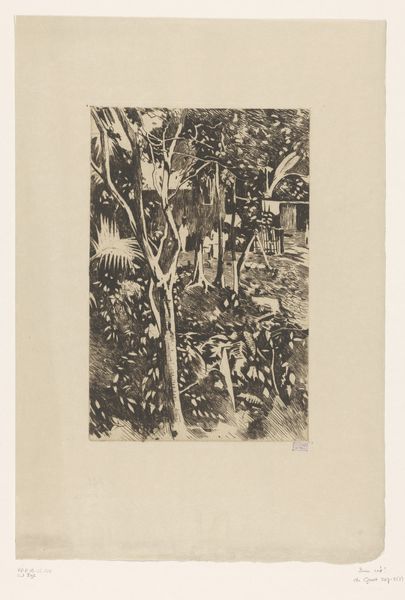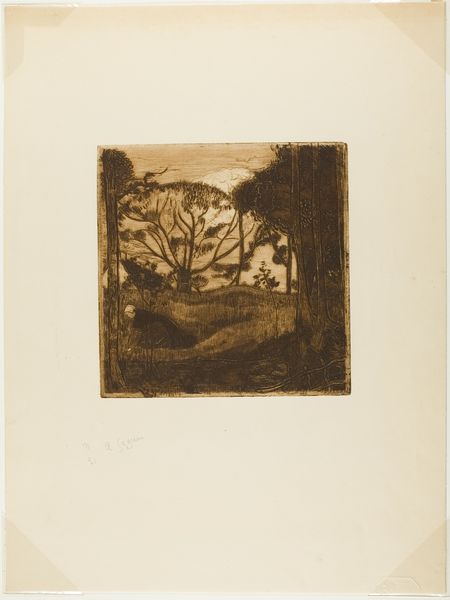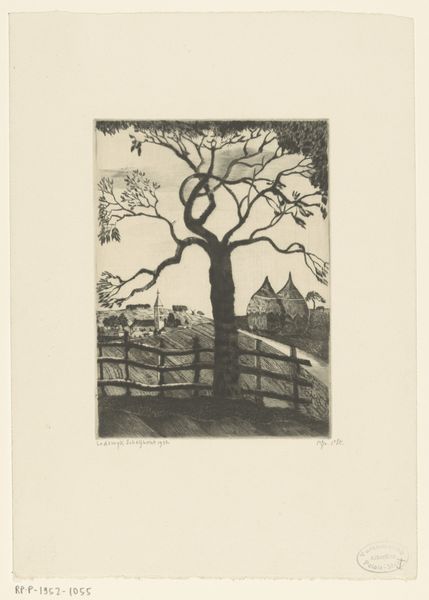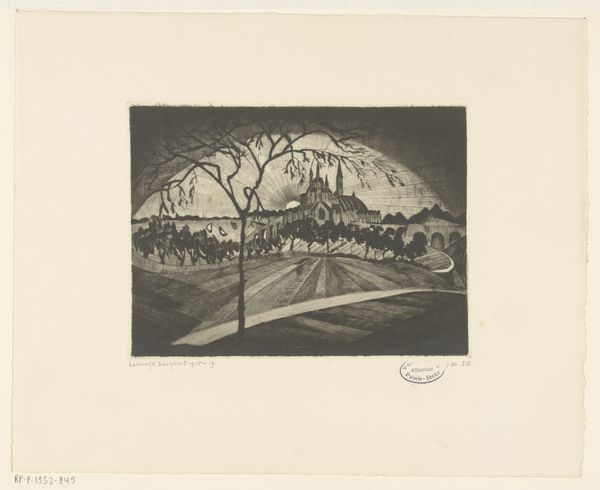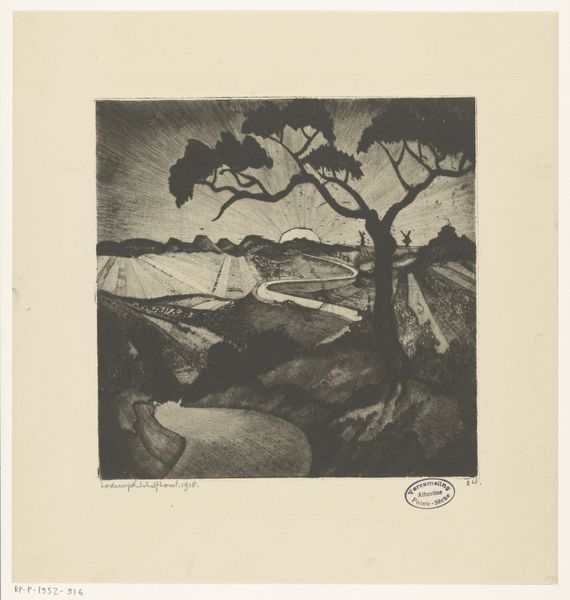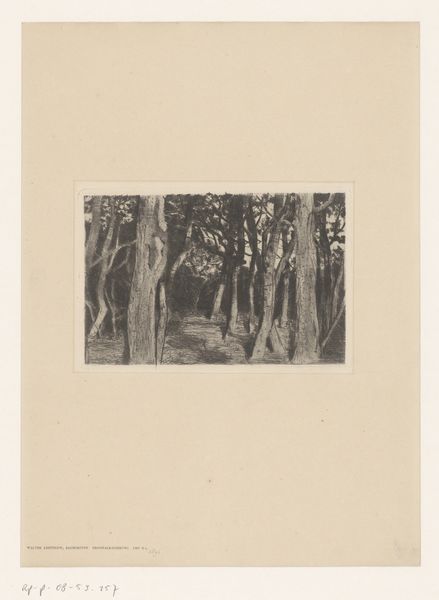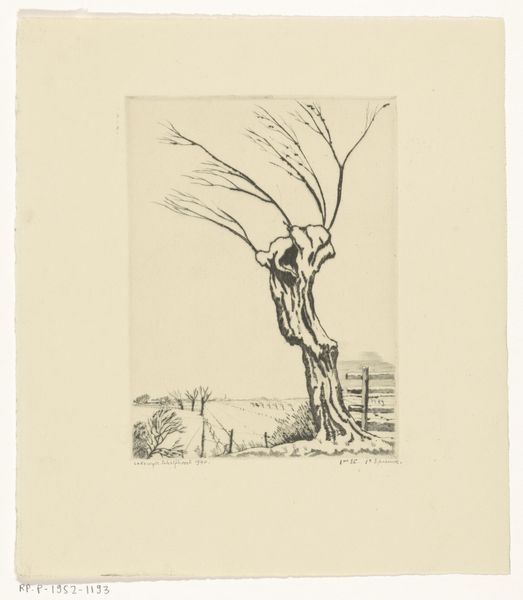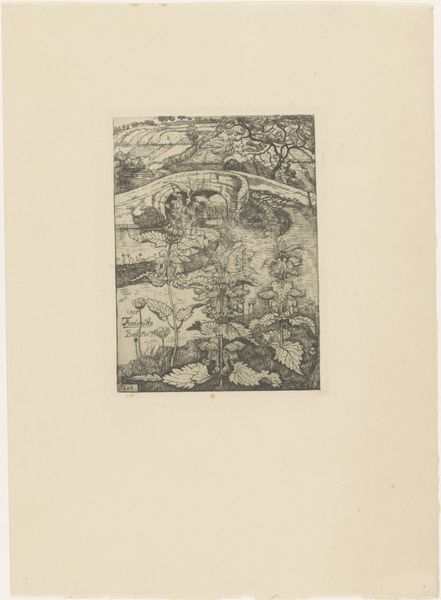
print, etching
#
dutch-golden-age
# print
#
etching
#
landscape
#
line
#
realism
Dimensions: height 161 mm, width 121 mm
Copyright: Rijks Museum: Open Domain
Lodewijk Schelfhout created this small print, Boomgaard, which means orchard, sometime around 1916, using a technique called drypoint. Look at how he makes the scene out of tightly packed lines, like he's knitting the whole picture together. The orchard and the distant windmill are built from so many tiny marks, it gives the image a lively and almost buzzing energy. These lines, etched directly into the metal, have a tactile quality, you can almost feel the burr of the drypoint needle. See that big tree that dominates the scene, those dark lines giving it volume and a sort of brooding presence. Schelfhout’s image is like a stripped-down version of a landscape, it has a similar intensity to some of the stark prints made by Emil Nolde around the same time. Ultimately, this little print shows us how much emotion can be wrung from simple lines, and how a limited palette can sometimes speak volumes.
Comments
No comments
Be the first to comment and join the conversation on the ultimate creative platform.
